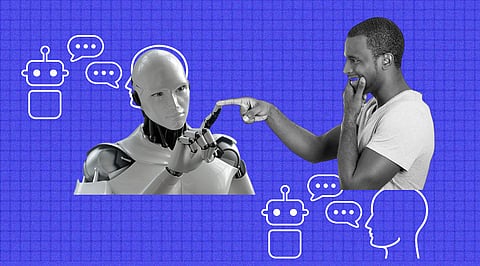
- InsightsInsights
- CryptocurrenciesCryptocurrencies
- Stocks
- White Papers
- IndustryIndustry
- GeographyGeography


Rohit Prasad, Amazon's lead scientist for Alexa, recently gave a presentation at the business conference on robots, space, automation, and machine learning. In his keynote, he discussed the importance of "empathy and affect" in establishing trust, noting that this is particularly true "during these times of the ongoing crisis when a lot of us have lost the people we love."
He continued by pointing out that although AI couldn't completely replace our loved ones, it can prolong their memories. A film displaying a feature that "enables lasting personal interactions" is introduced in this setup.
The presentation introduces a new function called Personal Voice Speech that enables users to replace Alexa's default voice with that of an individual they know in real life, even, as the presentation suggests, a loved one who has died away.
These stories are the most recent in a long tradition of speculating about how AI may alter the world if it became more humanlike, and they have elicited a combination of curiosity, jest, and meaningful discussion.
Putting aside the unsettling use case described in the Amazon presentation, the ability to replicate voices using brief audio snippets is undoubtedly a remarkable technological achievement. However, developing trust requires empathy and affect, and digital, human-like experiences can't be duplicated only by qualities.
Customers have made it clear that technology alone cannot produce a fantastic, individualized experience. Only if automation truly captures what makes our connections human can it enable brands of all sizes to offer more human connections at scale. Sci-fi packaging is not necessary for conversational technology at scale; even small firms can do it today and do it well. Technology that drives interactions that deliver depth over flashy features and authenticity over theatricality should be the emphasis of brands.
The best way for tools that push conversational interactions to function is when they are conversing with the user; this involves more than just learning from inputs and artificial data, but also engaging in a dialogue that provides more and more context as a recommendation is made, just like an individual would.
One-on-one encounters can provide brands with insights that are more potent than third-party data, and customers also prefer them.
Instead of trying to mimic these zero-party insights by gathering third-party data from unknowing users, brands that offer interactive, conversational experiences driven by data during engaging encounters with customers will stand for higher growth and stronger loyalty.
It's not necessary to mimic people to give humanity automated experiences. It involves comprehending how interpersonal interactions operate. We discover more about one another through dialogue, which is the crux of the idea.
Human interactions develop one question at a time, and as the dialogue goes on, each side gains more insight and context. Contrast this with a usual user experience where a brand just solicits information from them (such as their birthdate, email address, or hometown) and then steals the rest via cookies without their knowledge. The user gives all the value in this one-sided interaction and receives very little in return. Would you want to speak with someone again or feel comfortable disclosing personal information to them if they communicated with you in that way if they were a real person? Most likely not.
Even if technological developments that bring artificial intelligence closer to mankind are amusing and thought-provoking, very few of them have succeeded in capturing the aspects of our humanity that enable interpersonal connections, like empathy.
The more subtle interactions that seem so natural will hold value for both companies and customers; the technology is practically undetectable and takes a back seat to enable a more empathic link to our humanity.
Bitcoin at Crisis! Fails to Regain Traders' Faith After Slipping Through US$24K
Google is Infusing LLM into Home Robots! Where is it Taking us?
Why AIOps Can Be Essential for Engineering in The Future
PyPi Python Packages are the New Source of Supply Chain Attacks
Zuckerberg's Metaverse Avatar again Screams 'Basic'! Gets Twitter Criticism
Tornado Cash has Made Normal DeFi Founders Vulnerable and Incapable
Top 10 Convolutional Neural Network Questions Asked in FAANG Interviews
If Constipation is What Bothers You, Make a Visit to this AI Doctor
